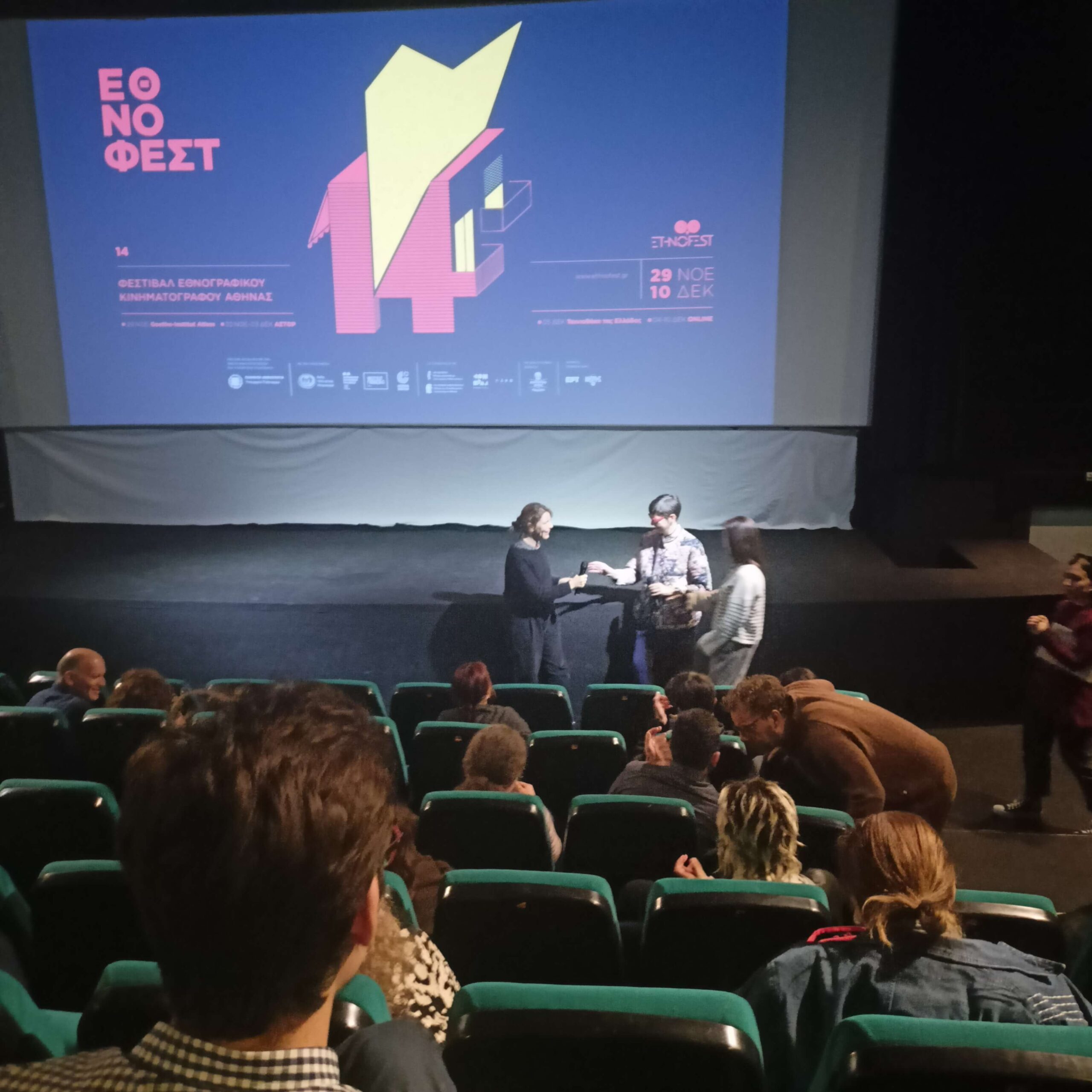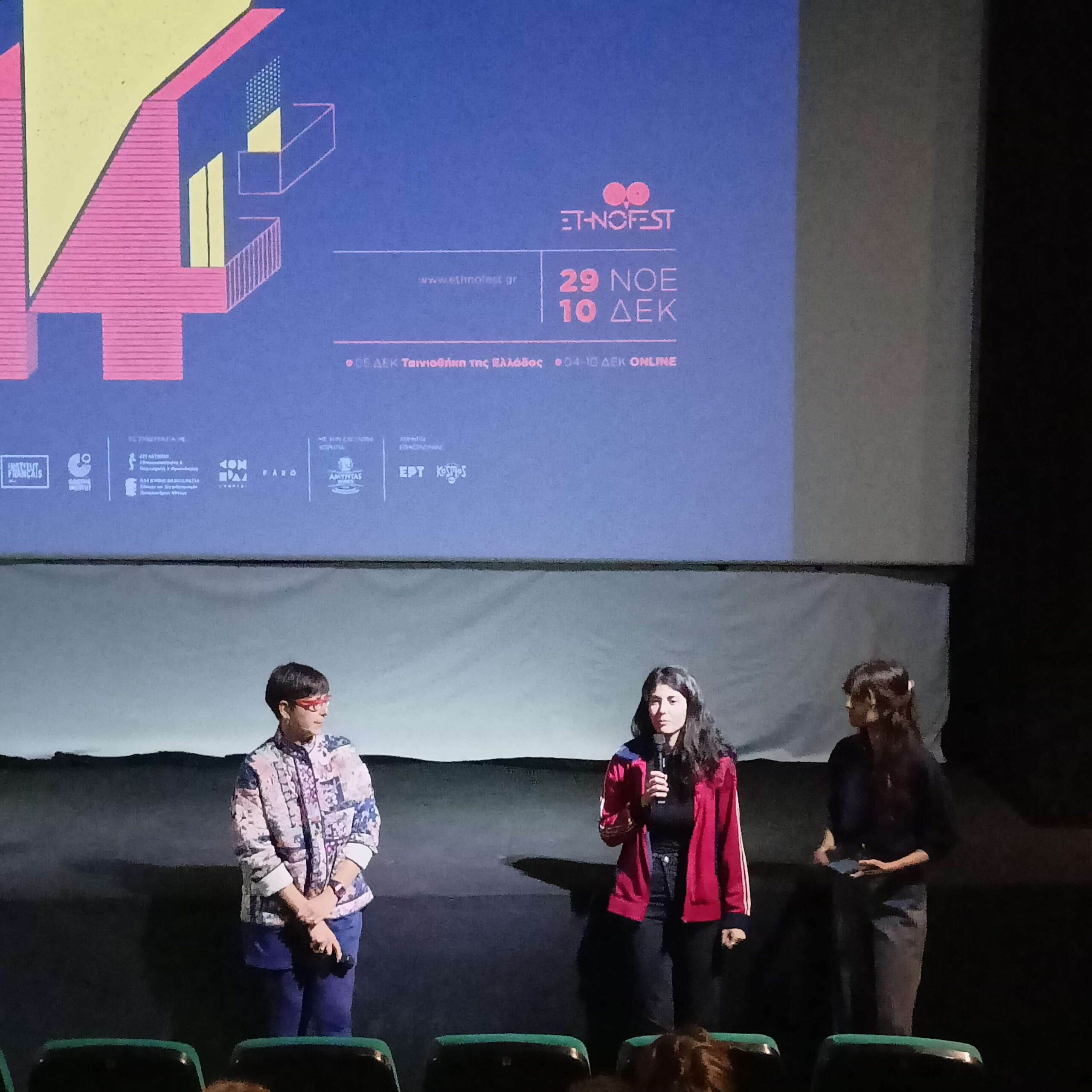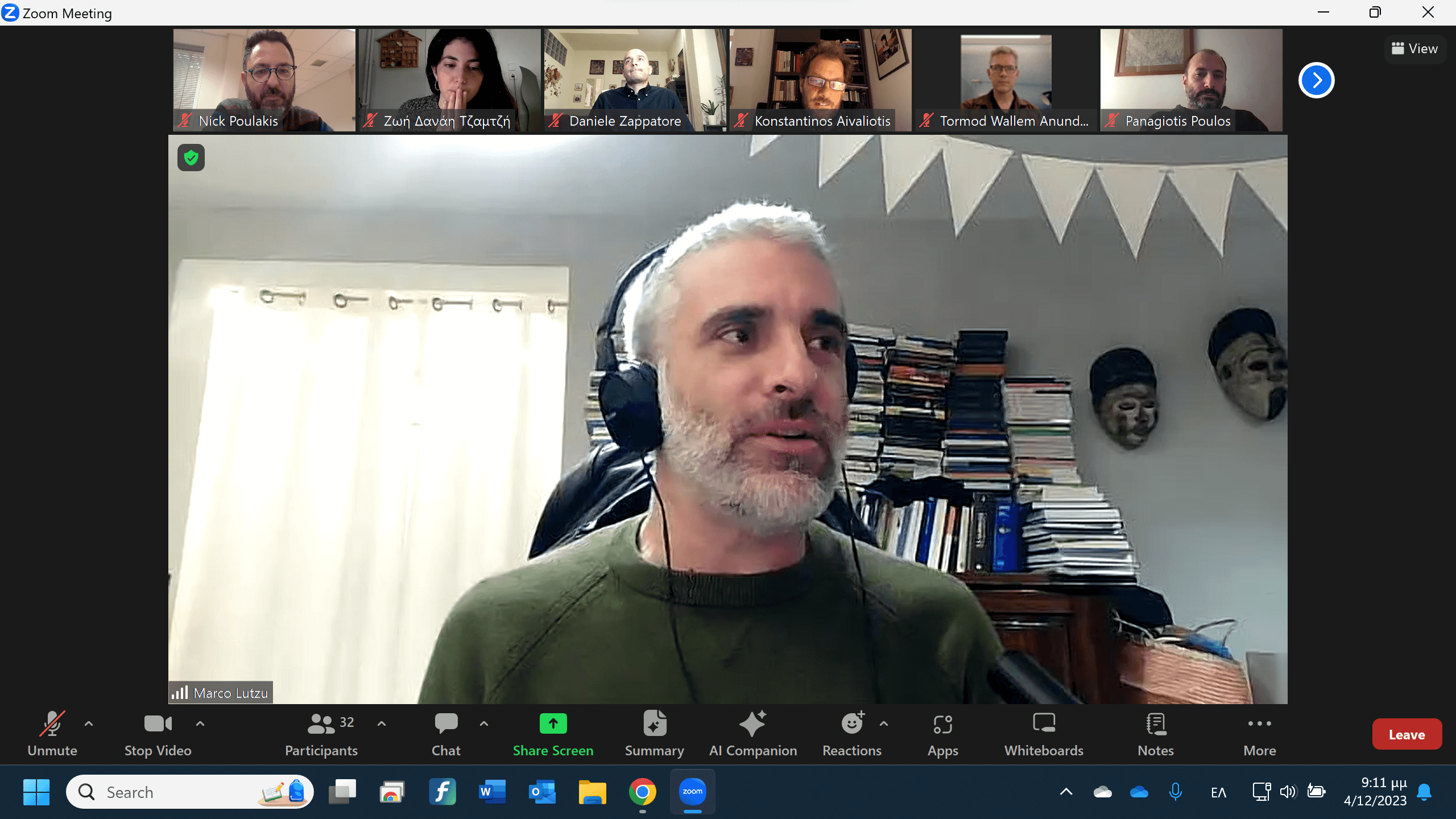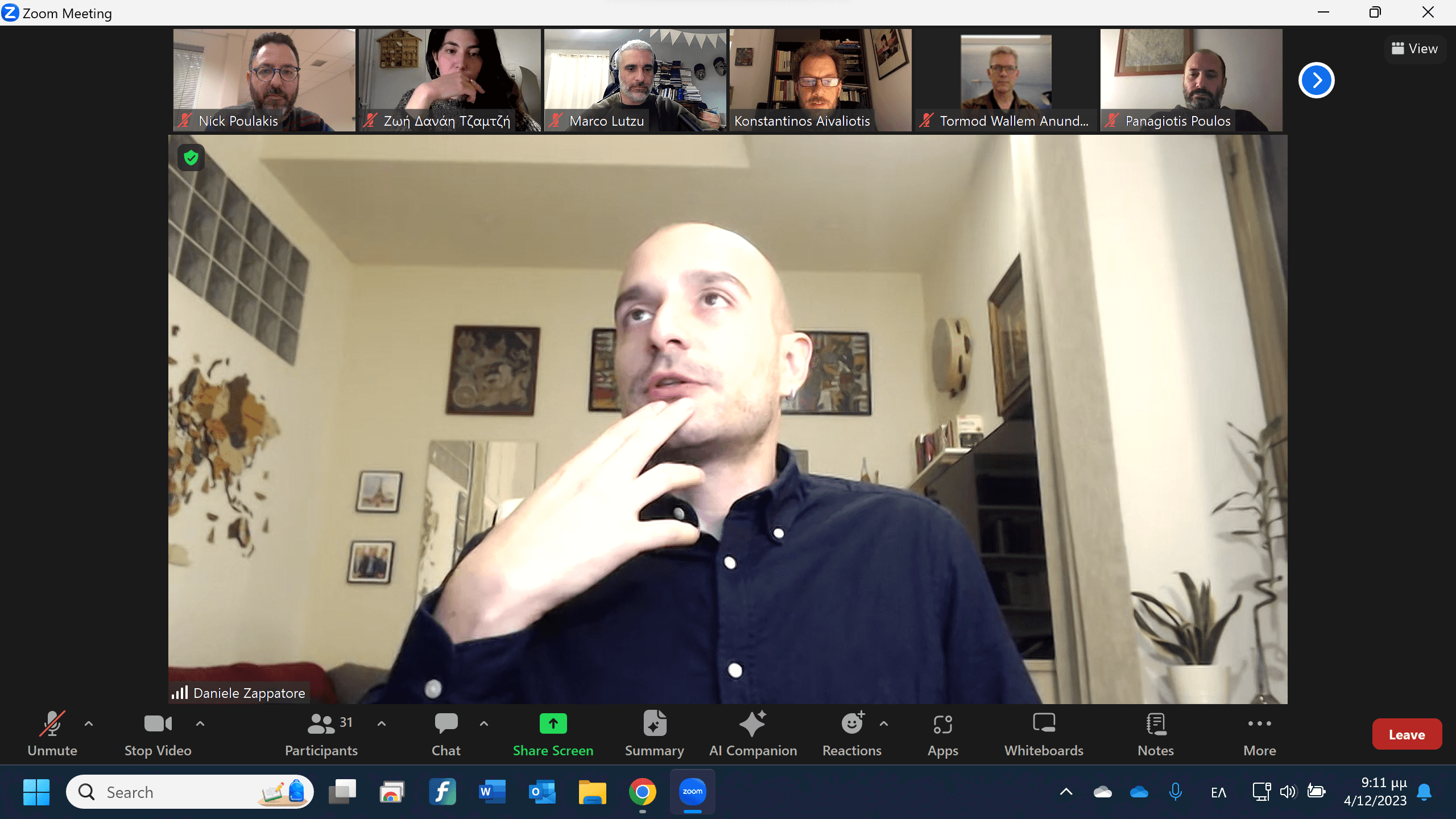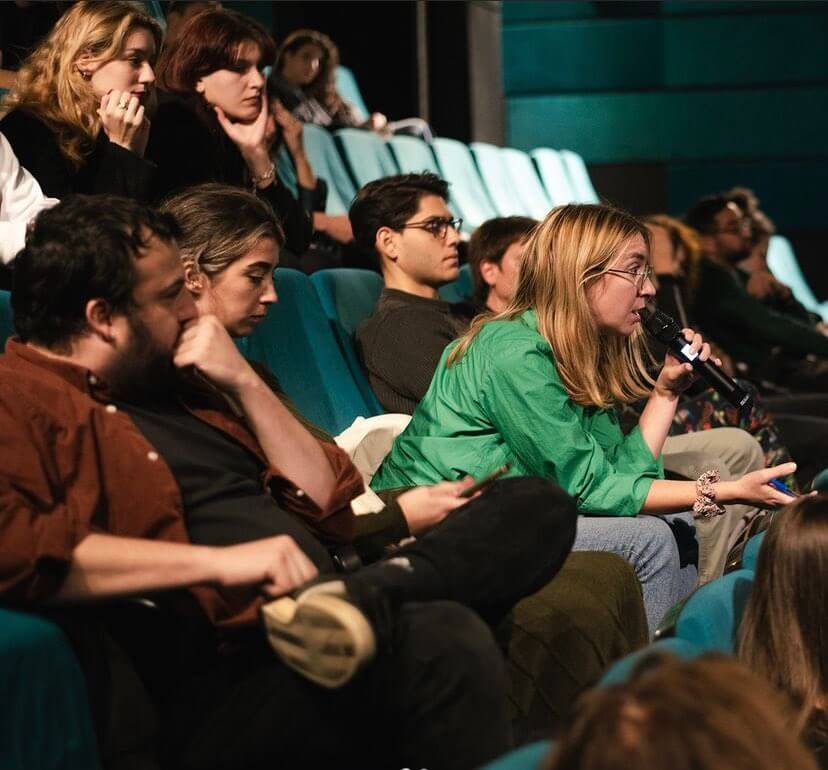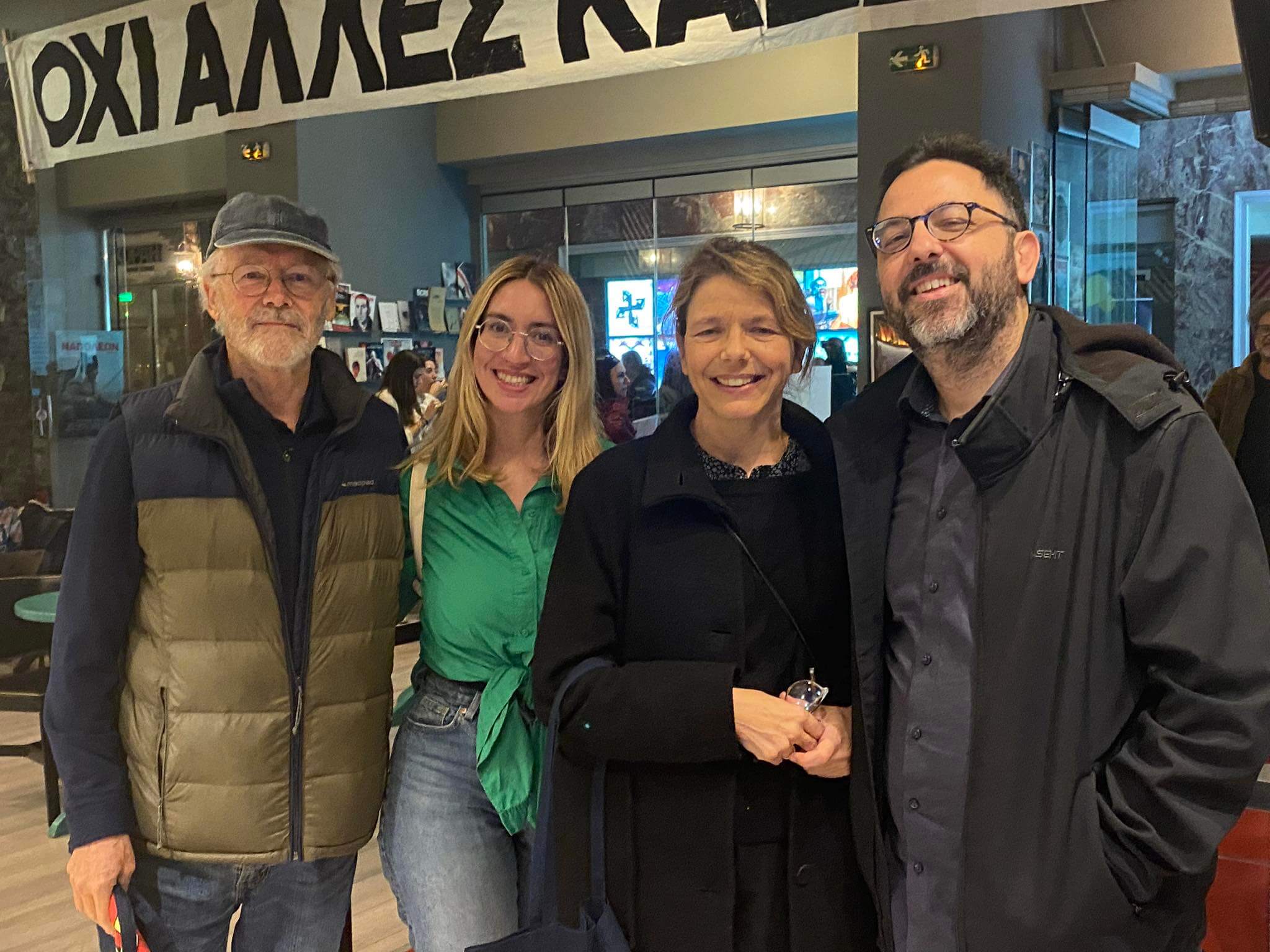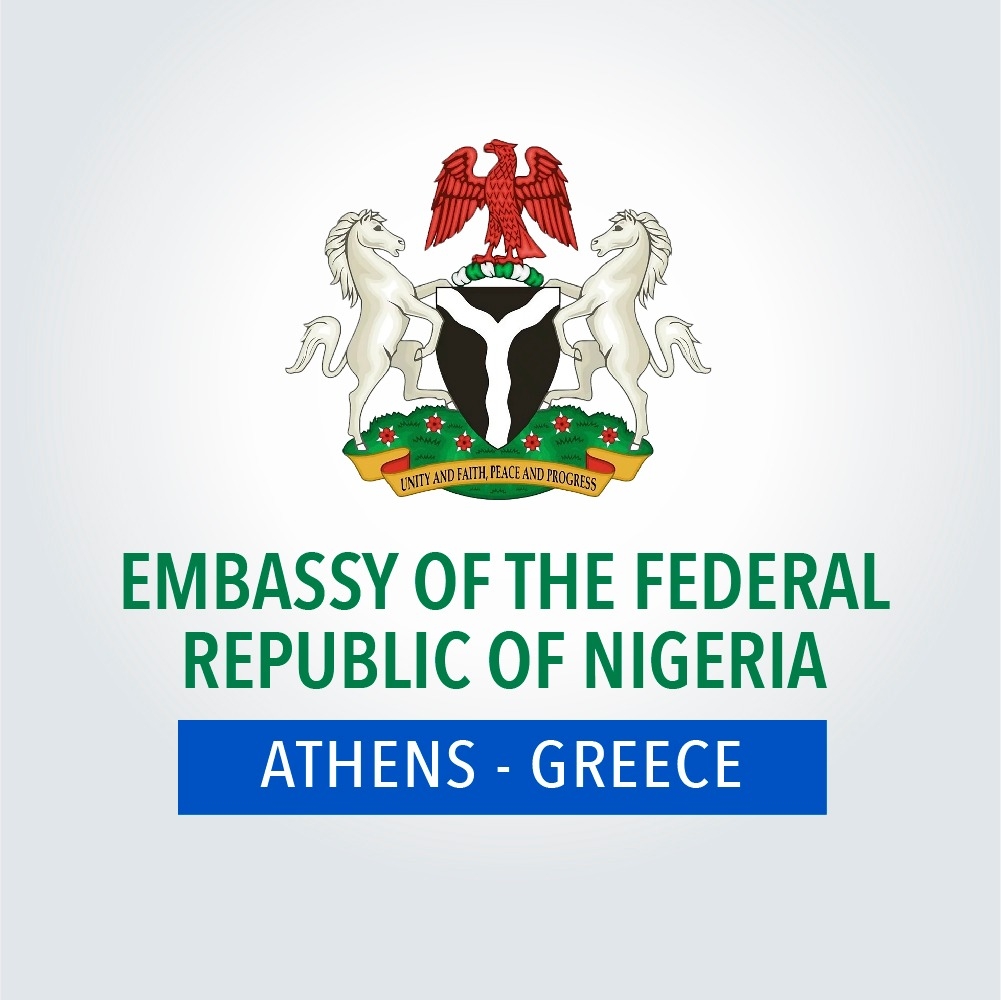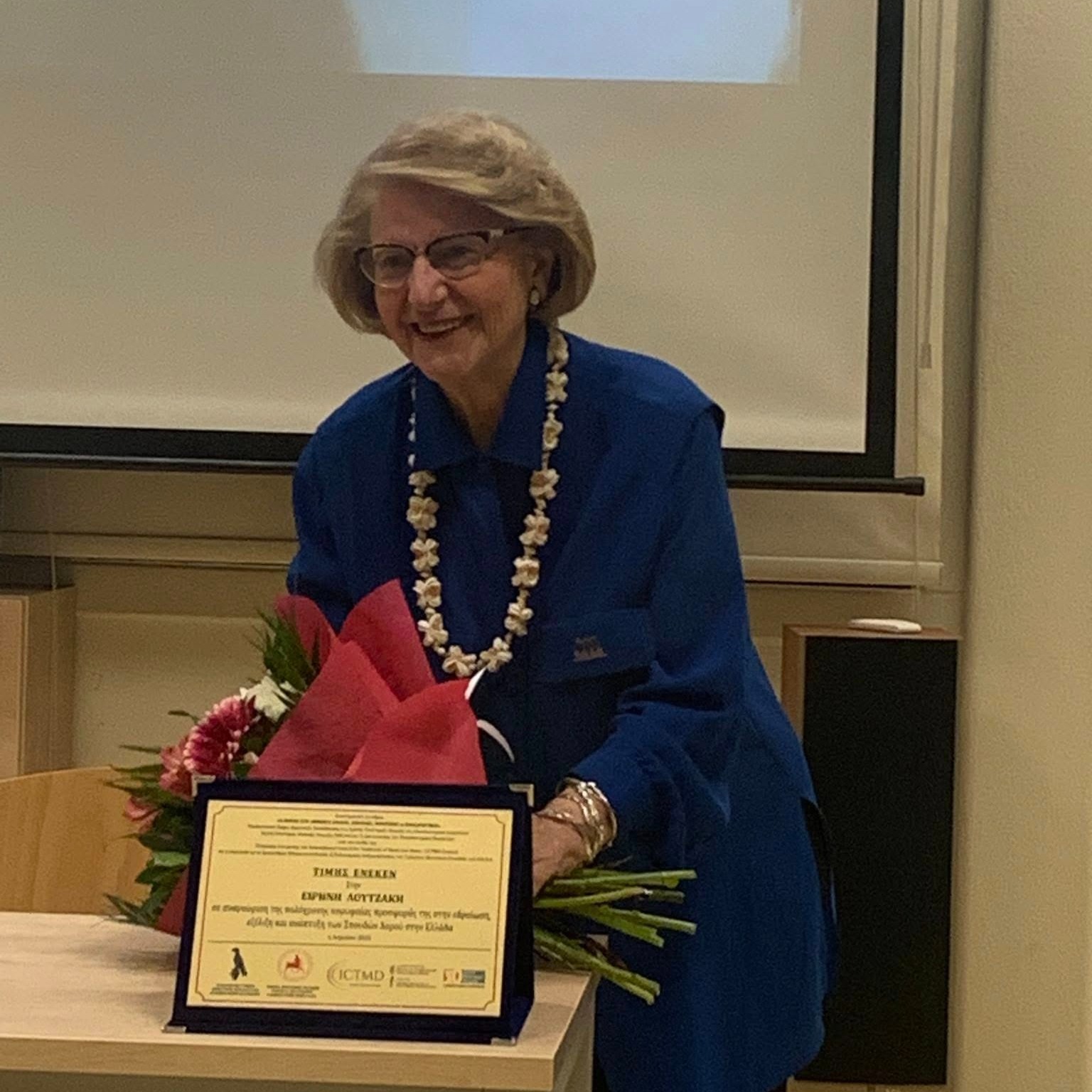The beginning of a new collaboration
This year was the beginning of a new collaboration between the ethnographic film festival of Athens Ethnofest and the Ethnomusicology and Cultural Anthropology Laboratory of the University of Athens.
The Laboratory of Ethnomusicology and Cultural Anthropology of the Department of Music Studies of the National and Kapodistrian University of Athens, in collaboration with the Festival, participates in three important actions that aim to explore the relationship between music and ethnomusicology and ethnographic cinema.
We are excited to recover more the intricacies of ethnomusicolgical film as a subset of ethnographic film in the years to come.
1st Event – screening of the film “Margot”
During the festival, we participated in three special events. The first one was the screening of the film “Margot” by Catarina Alves Costa. After the screening we had the opportunity to have a live discussion with the director who was present at the festival. Through the different layers of storytelling in the film, we understand the power of the audiovisual material through the years as well as the dynamic relationship between the researcher and the field, which is conveyed via the eyes of both Margot and Catarina. For us as a lab, this film has a special interest. It mirrors our own multiple music related identities: as musicians, researchers – enthomusicologists or potential film makers understanding music as a multifaceted human activity.
2nd Event – “Intangible Cultural Heritage: 20 Years Within The World”, an open discussion
In addition, on the occasion of the tribute entitled “Intangible Cultural Heritage: 20 Years Within The World”, Ethnofest organized an open discussion in collaboration with the Ministry of Culture and the Laboratory of Ethnomusicology and Cultural Anthropology of the Department of Music Studies. Dr. Nick
Poulakis, a member of the Special Technical Laboratory Staff of the
Laboratory of Ethnomusicology and Cultural Anthropology, and the UNESCO Chair Team participated in the discussion with a special presentation about the
represenation of music culture in the context of Intangible Cultural Heritage.
3rd Event- online screenings and online discussion
Finally, we selected two films made by ethnomusicologists and filmmakers for the online edition of the festival: “Santeros” (Marco Lutzu) and “Carang Pring Wulun: The journey of a Bamboo Gamelan Maestro” (Daniele Zappatore). On the occasion of their films, the ethnomusicologists and filmmakers Marco Lutzu and Daniele Zappatore discussed with the team of the Laboratory about the role of music in film and ethnographic research as a means of exploring ourselves and our relationships with people.
A Note from the Study Group “Audiovisual Anthopology and Ethnomusicology”
On November of 2023 the Lab of Ethnomusicology and Cultural Anthropology participated in the 14 th edition of Athens Ethnographicfilm festival. Previously, in 2023 we created a study group under the academic umbrella of the Ethnomusicology and Cultural Anthropology Lab of UOA. Our common interest was the relationship of music with cinema in anthropological and ethnomusicological terms, according to the way of studying we have been following about through all these years in our University and beyond. With a common background in music practice and in ethnomusicology, we started thinking about
- how the audiovisual means can have a significant role in music ethnographyand vice versa,
- how the methodology of ethnomusicology can apply tothe filmmaking practice.
We started organizing meetings and discussing the bibliography about cinema and ethnomusicology, watching films all together and sharing our thoughts about them. However, a central aspect of our concerns was how we can find ways to share our thoughts and all this discourse with other people not necessarily involved in music practically. At that moment we thought about the vital role of a film festival where you can share this experience in a more collective way. Ethnofest brings out this idea of community in such a successful way. So, with the beginning of this collaboration we had the chance to leave the university classrooms and to work in a broader social context, in terms of the festival. The 14th edition of the festival paid tribute to Intangible Cultural Heritage and music has its central role in this section. As a study group we felt that it was quite important to include in the general discussion, music through the eyes and ears of people that had studied music in a systematic or more experiential way. Nowadays, audiovisual ethnomusicology as an independent field gains more ground in academic and non-academic conversations (new online journals, specific conferences, festivals, workshops).
All these efforts and procedures concluded on the three events mentioned above.
As a study group we will continue searching ways of creating channels of communication regarding research, art and society. We would like to thank the team of the festival that supported this whole new project and especially, the founder of the festival Kostas Aivaliotis and also, Silas Michalakas. We also thank Maria Papavlou the director of the Laboratory of Ethnomusicology and Cultural Anthropology of the Department of Music Studies and Pavlos Kavouras, The UNESCO Chairholder, for his scientific contribution in the project.
Related Articles
Activities, Events, Participations, Uncategorized

